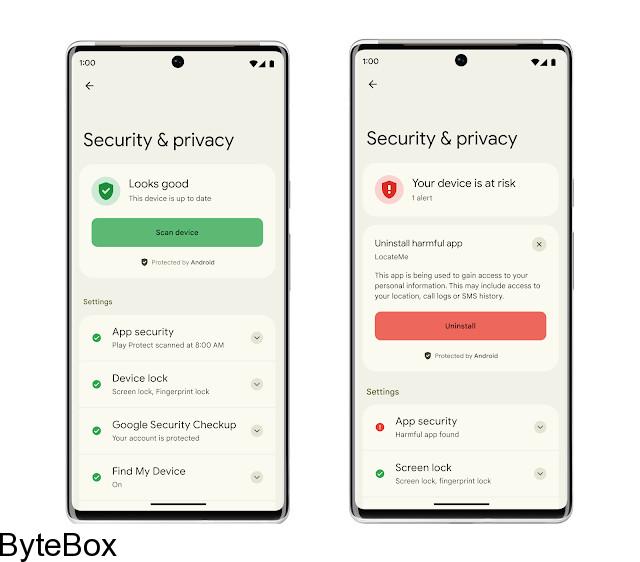As technology continues to advance, our smartphones have become an integral part of our lives. Among the various operating systems available, Android has emerged as one of the most popular choices. However, with its widespread usage, the security of Android devices has become a major concern. In this article, we will delve into the importance of securing your Android phone and explore the best practices to enhance its protection.
Understanding the Security Risks of Android Devices
Android devices are not immune to security risks. They can be vulnerable to various threats, such as malware, phishing attacks, and data breaches. Malicious apps can easily find their way into the Google Play Store, making it essential to be cautious while downloading and installing applications. Additionally, Android’s open-source nature can make it susceptible to exploitation by cybercriminals. Therefore, it is crucial to be aware of these risks and take proactive steps to safeguard your Android phone.
Importance of Securing Your Android Phone
The security of your Android phone should be a top priority. With the proliferation of sensitive information stored on our devices, including personal data, financial details, and even confidential work documents, the consequences of a security breach can be devastating. Unauthorized access to your phone can lead to identity theft, financial loss, and invasion of privacy. By implementing robust security measures, you can mitigate these risks and protect yourself from potential harm.


Best Practices for Enhancing Android Phone Security
Choosing and Setting Up a Secure Lock Screen
One of the first lines of defense for securing your Android phone is choosing a strong lock screen. Avoid using predictable patterns or easily guessable PIN numbers. Instead, opt for a complex password or a biometric authentication method, such as fingerprint or facial recognition. These methods provide an added layer of security and make it harder for unauthorized individuals to gain access to your device.
Enabling Two-Factor Authentication for Added Security
Two-factor authentication (2FA) adds an extra layer of protection to your Android phone. By enabling 2FA, you will be required to provide a second form of verification, such as a unique code sent to your registered email or a text message, in addition to your regular password. This ensures that even if someone manages to obtain your password, they will still be unable to access your device without the second factor of authentication.
Installing and Updating Security Apps and Software
To bolster the security of your Android phone, it is essential to install reputable security apps and regularly update them. These apps provide real-time protection against malware, viruses, and other malicious software. Look for trusted antivirus and anti-malware applications that offer features such as app scanning, web protection, and anti-theft capabilities. Ensure that you keep these security apps up to date to benefit from the latest security patches and enhancements.
Regularly Backing Up Your Android Phone
Backing up your Android phone regularly is essential to protect your data in case of loss, theft, or hardware damage. By creating backups, you can restore your settings, applications, and personal data onto a new device if needed. Utilize cloud-based backup services, such as Google Drive or Dropbox, to securely store your data. Additionally, consider using a local backup method, such as connecting your phone to a computer and transferring your files periodically.
Avoiding Risky Apps and Downloads
Exercise caution while downloading apps and files from external sources. Stick to trusted app stores, such as the Google Play Store, and carefully review user reviews and ratings before installing any application. Be wary of apps that request excessive permissions or show suspicious behavior. Additionally, refrain from downloading files or clicking on links from unverified sources, as they may contain malware or lead to phishing attempts.
Protecting Your Personal Information and Privacy
Take steps to protect your personal information and privacy on your Android phone. Regularly review and adjust your privacy settings to limit the data accessible by apps and services. Consider disabling location services for apps that do not require it. Be cautious when sharing personal information online or through messaging apps. Be mindful of the information you share on social media and adjust your privacy settings accordingly.
Securing Your Android Phone When Connected to Public Wi-Fi
Public Wi-Fi networks can be a breeding ground for cyber-criminals. When connected to public Wi-Fi, your Android phone is susceptible to various attacks, such as man-in-the-middle attacks and data interception. To enhance your security, avoid conducting sensitive transactions, such as online banking or accessing private accounts, while connected to public Wi-Fi. Instead, use a virtual private network (VPN) to encrypt your internet traffic and protect your data from prying eyes.
Keeping Your Android Phone Software Up to Date
Regularly updating your Android phone’s software is crucial for maintaining its security. Software updates often include security patches that address vulnerabilities and improve the overall security of the device. Enable automatic updates in your phone settings to ensure that you receive the latest updates promptly. Additionally, keep your apps updated, as outdated apps can also pose security risks.
Encrypting Your Android Phone for Added Protection
Encrypting your Android phone provides an additional layer of protection for your data. Encryption ensures that your data is converted into an unreadable format, making it inaccessible without the decryption key. Enable device encryption in your phone settings to safeguard your personal information, including saved passwords, messages, and files, from unauthorized access.
Using a Virtual Private Network (VPN) on Your Android Phone
A VPN is a valuable tool for securing your online activities on your Android phone. A VPN creates a secure and encrypted connection between your device and the internet, protecting your data from interception and surveillance. It can be particularly useful when using public Wi-Fi networks or when accessing sensitive information online. Choose a reputable VPN provider and configure it on your Android phone to ensure your online privacy and security.




